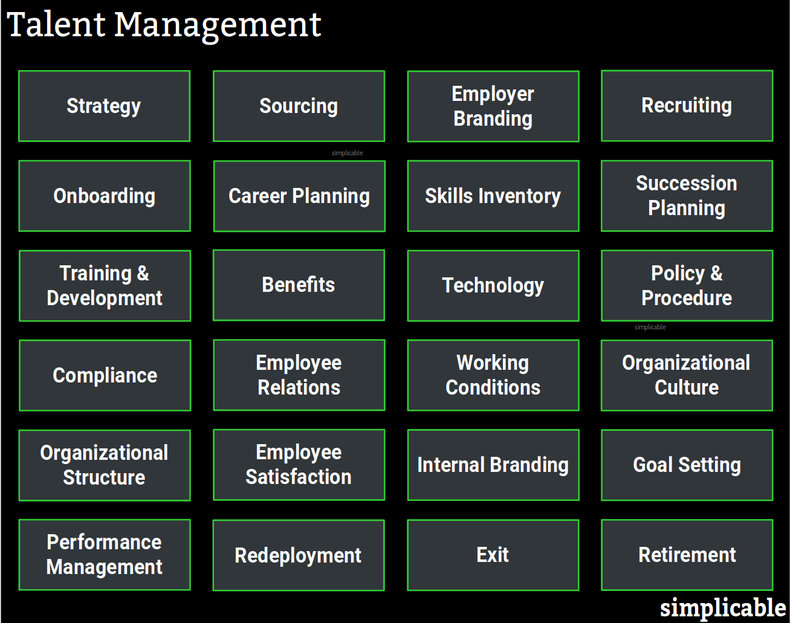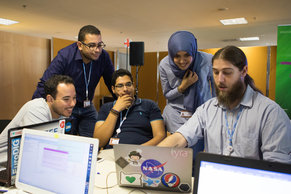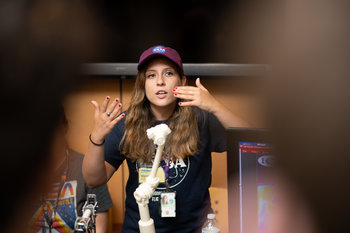
Strategy
Planning strategy for recruiting, retaining, managing and developing talent.Sourcing
Developing relationships with sources of talent such as universities.Employer Branding
The process of establishing a valuable image for an employer in the market.Recruiting
Recruiting is the end-to-end process of discovering talent and hiring them.Onboarding
Giving new employees everything they need to do their job from the first day. This often includes efforts to introduce your organizational culture such as a orientation session.Career Planning
Working with talent to identify and support their goals for their career.Skills Inventory
Identifying the skills required by an organization and the current coverage and depth of those skills.Succession Planning
Identifying critical roles and preparing individuals to step into those roles when required.Training & Development
Providing opportunities for training and development to support career development and address gaps in your skills as an organization.Benefits
Design, administration and communication of employee benefits.Technology
Sponsoring systems and tools to improve the efficiency of talent management processes.Policy & Procedure
Establishing, monitoring and controlling working rules and procedures.Compliance
Compliance to laws, regulations, standards and internal guidelines. This involves training, communication, internal controls, monitoring, issue management and reporting.Employee Relations
Managing relationships with employees including internal communications.Working Conditions
Designing policy and procedure to ensure attractive working conditions. For example, policies related to work-life balance such as flextime.Organizational Culture
Working to shape positive and productive norms, expectations and shared meaning. Organizational culture evolves over your history and isn't directly controlled.Organizational Structure
Designing the structure of an organization to support organizational objectives.Employee Satisfaction
Measuring employee satisfaction and working with employees to improve things that are causing dissatisfaction.Internal Branding
Building your brand from the inside out to develop a brand identity that is authentic.Goal Setting
The process of agreeing to goals that deliver an organization's strategy.Performance Management
Agreeing to performance objectives and monitoring performance. Regular feedback is provided with rewards and recognition for high performance and management of performance issues.Redeployment
The process of transferring employees to different roles, possibly to an associated entity such as a subsidiary.Exit
The process of handling terminations and resignations.Retirement
The process of transitioning employees into retirement and managing retirement benefits and relationships with retirees. Retirees are typically viewed as affiliated with your organization whereas former employees who have exited are no longer affiliated.Talent Management vs Human Resources
Talent management and human resources are essentially two terms for the same practice. Talent management can be used to distance a firm from the historical practices of human resources that tended to treat employees as commodity labor. By viewing employees as talent as opposed to "labor" or "human capital", talent management practices seek to differentiate a firm in a competitive market for skilled employees. In some cases, human resources remains as an administrative practice and talent management is seen as a complimentary practice that handles the human side of things such as organizational culture, recruiting and employee relationships.Talent Management & Entertainment
The use of the term talent management originates with the entertainment industry where has a completely different meaning. In the entertainment industry, a talent manager is an individual who manages the business affairs of creative talent such as an actor. This includes selecting agents, managing finances and publicity.| Overview: Talent Management | ||
Type | ||
Definition | The end-to-end process of establishing and managing relationships with employees. | |
Related Concepts | ||

























